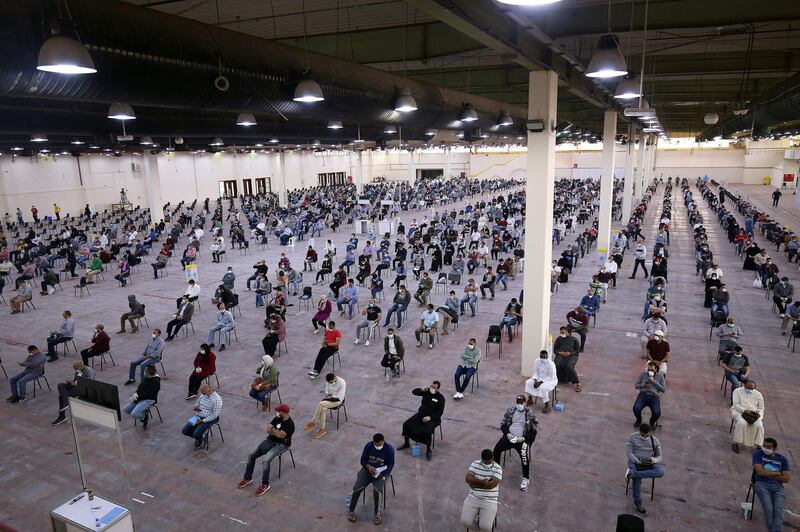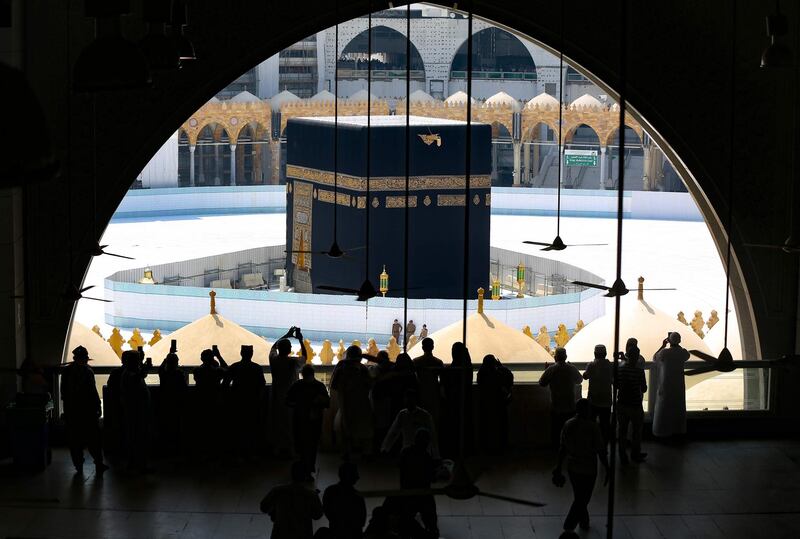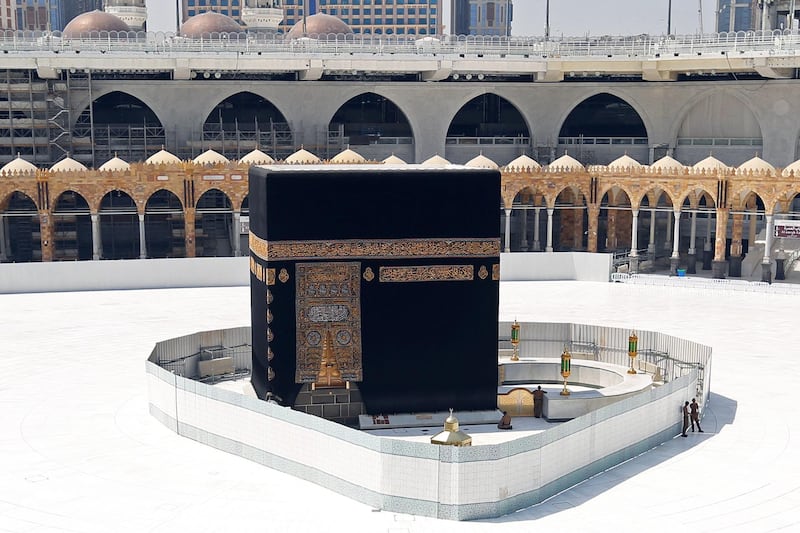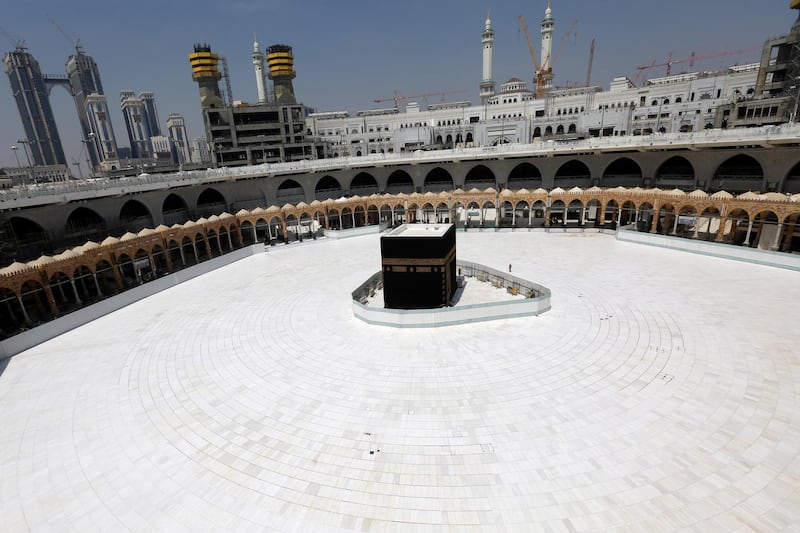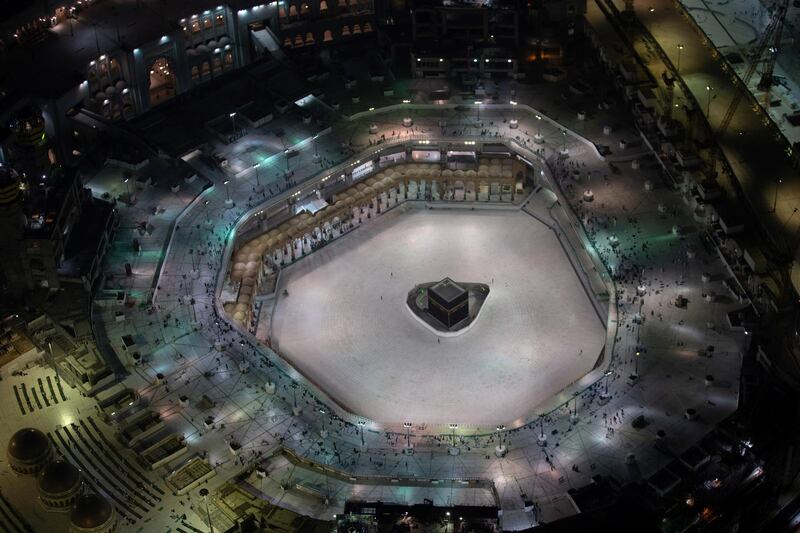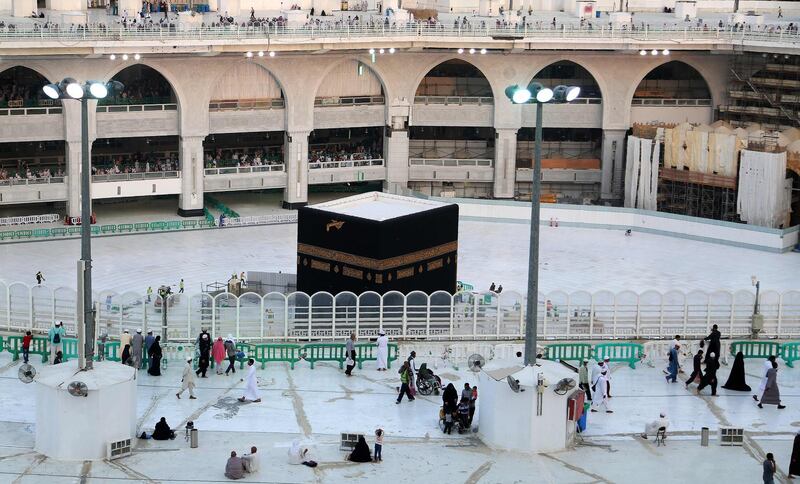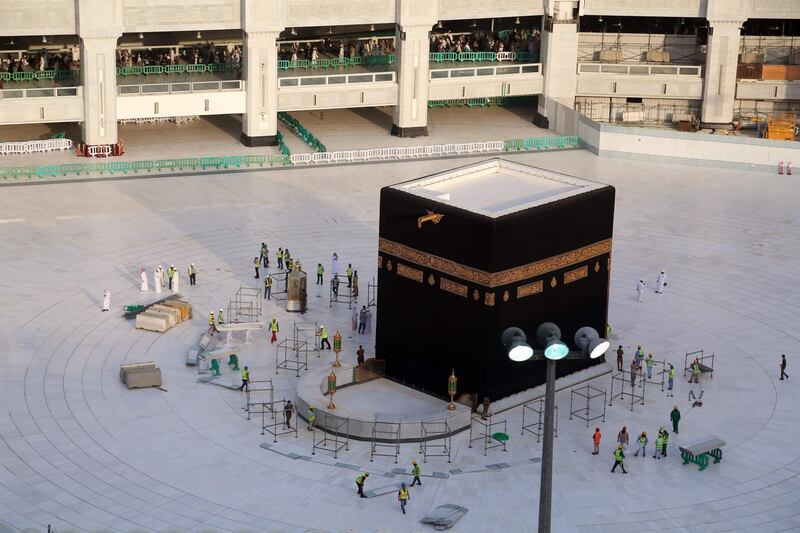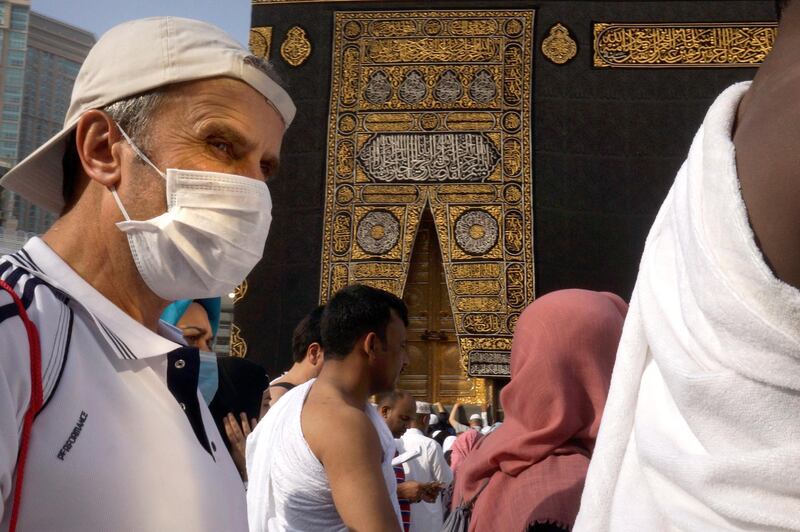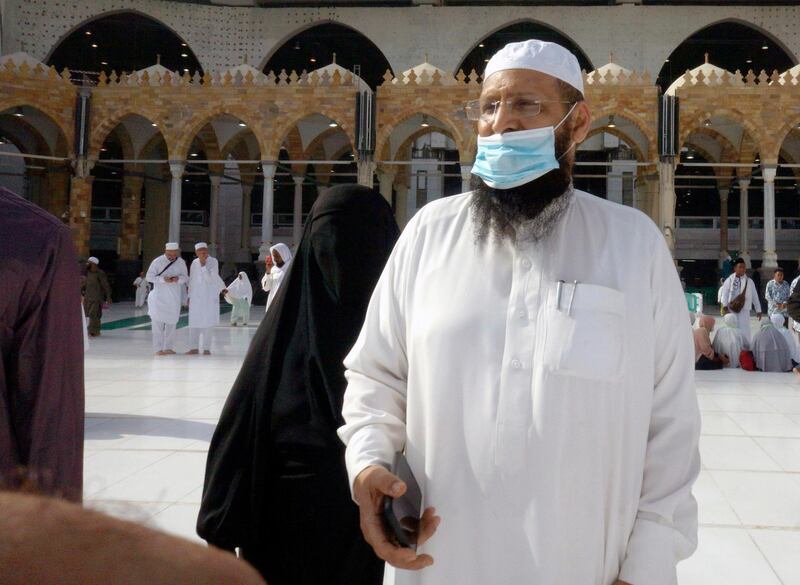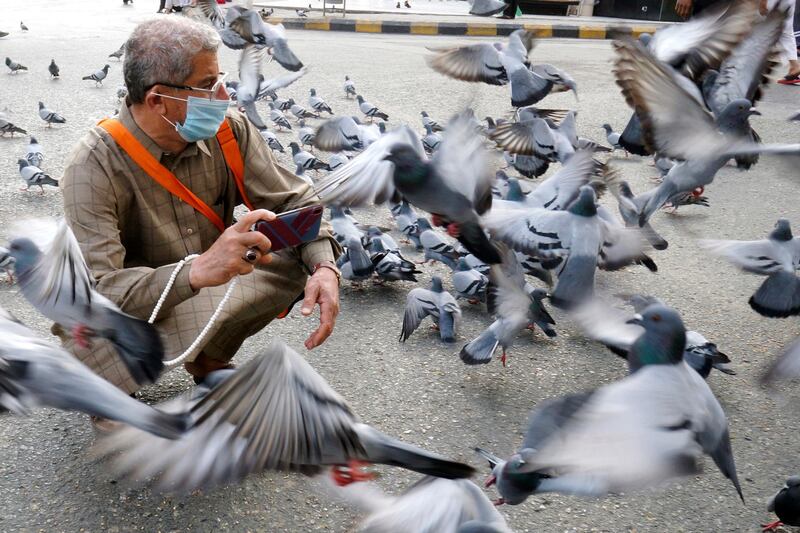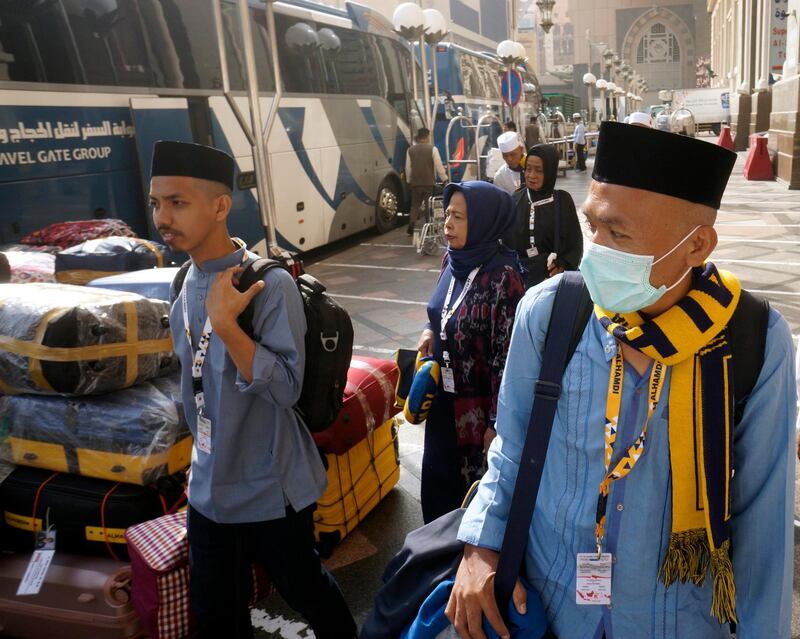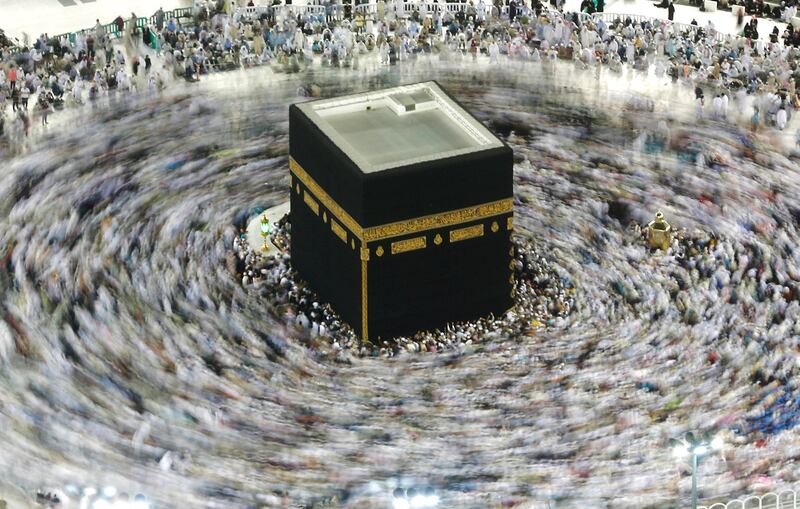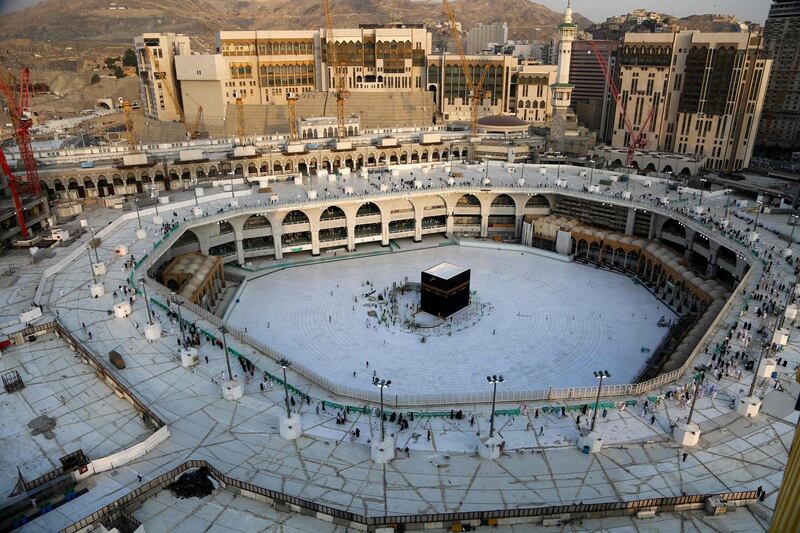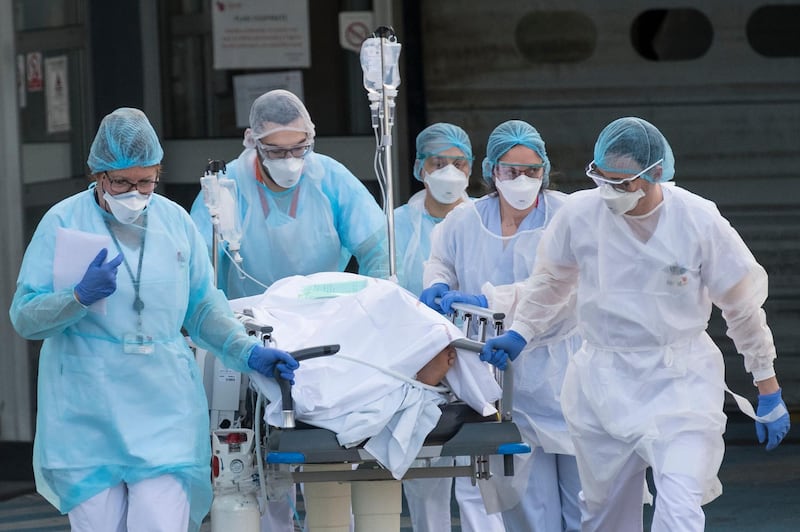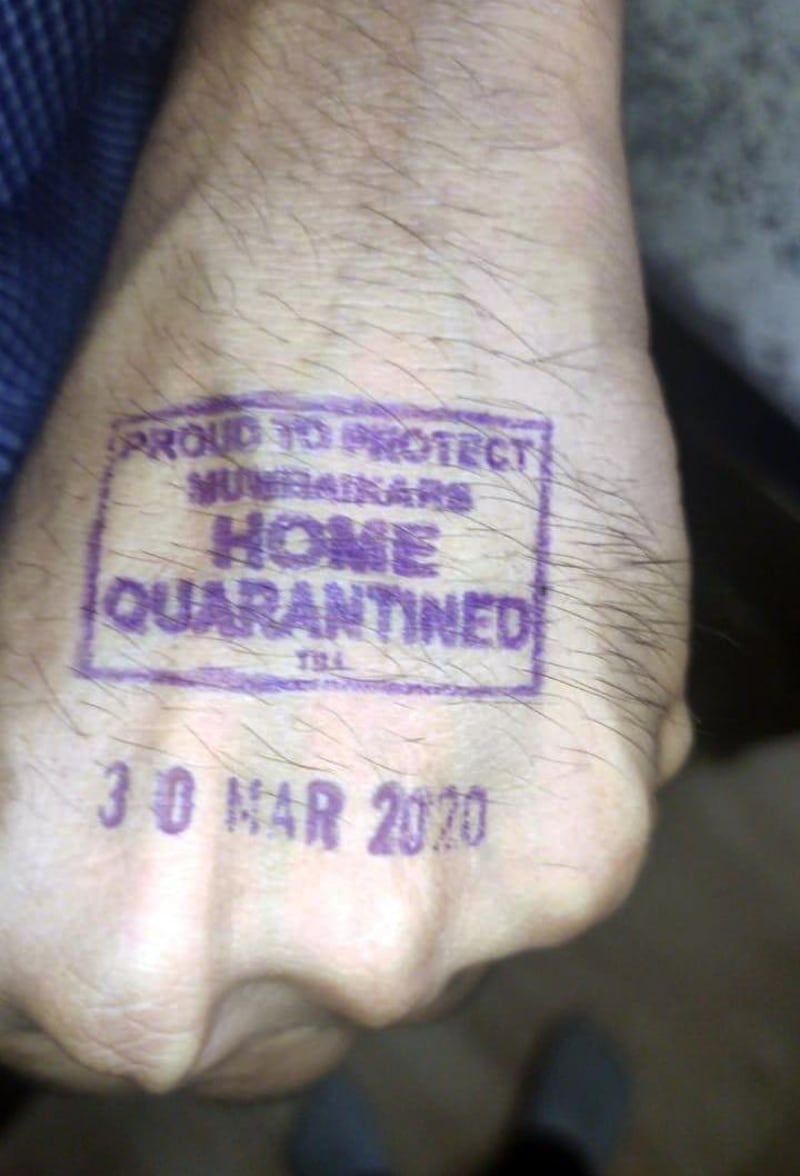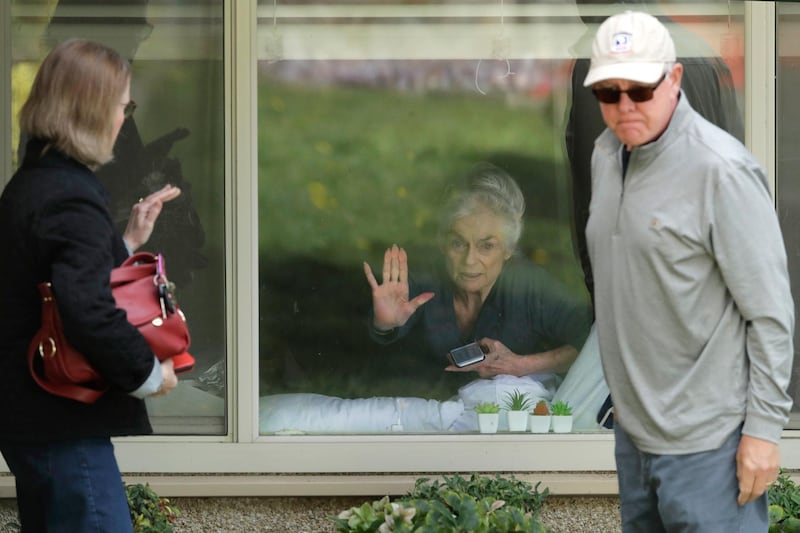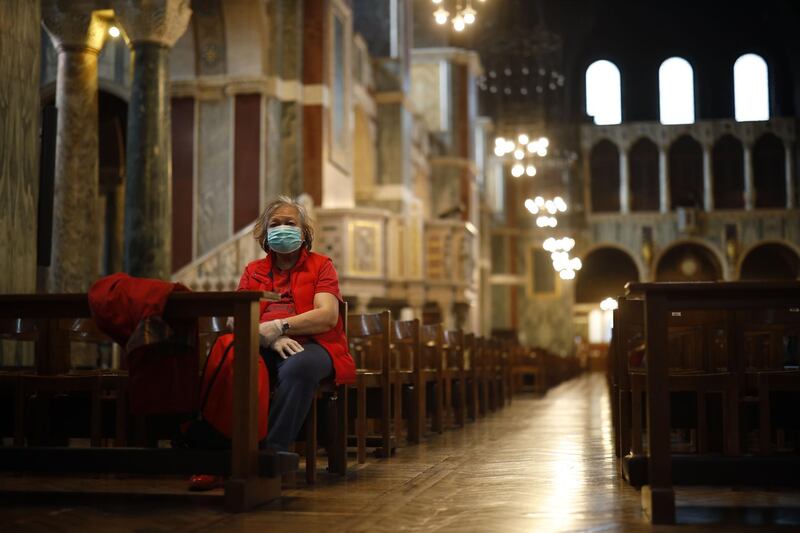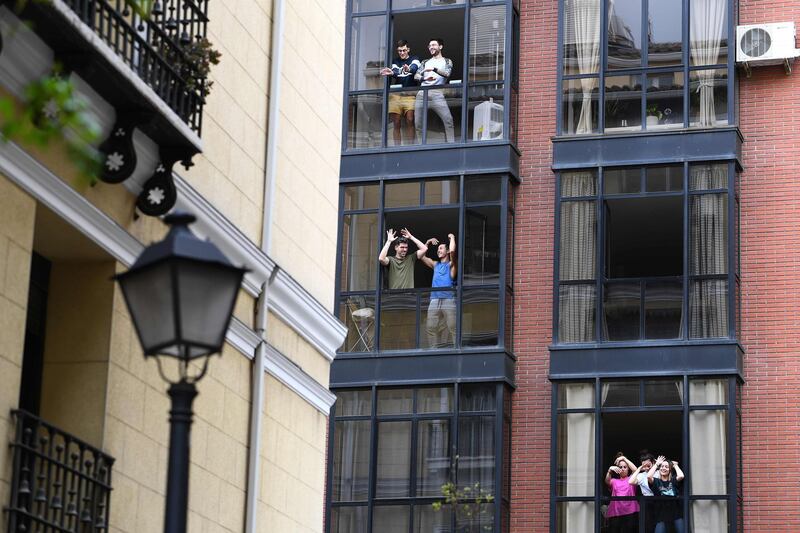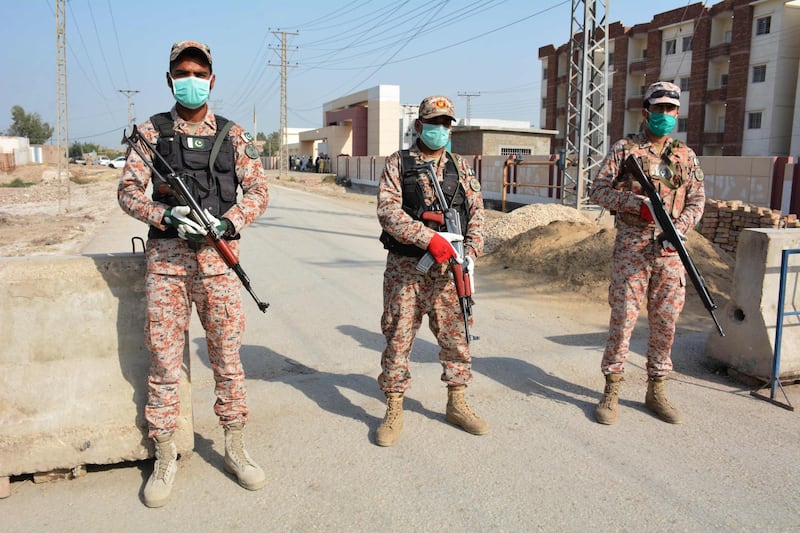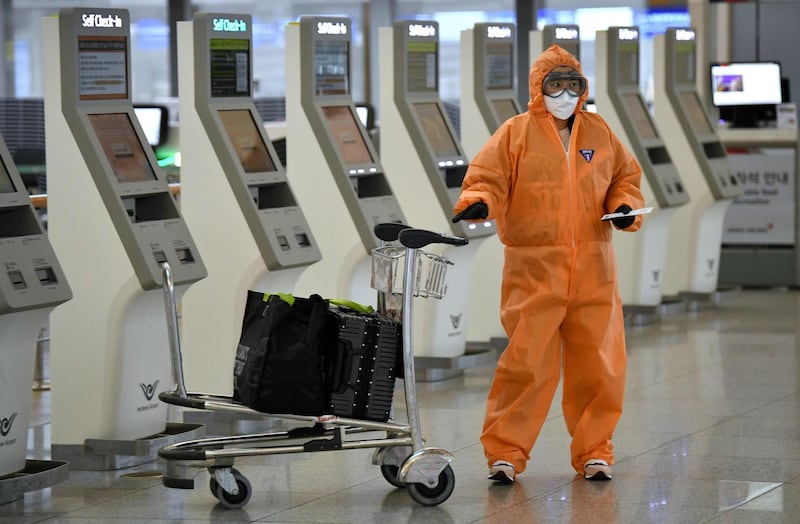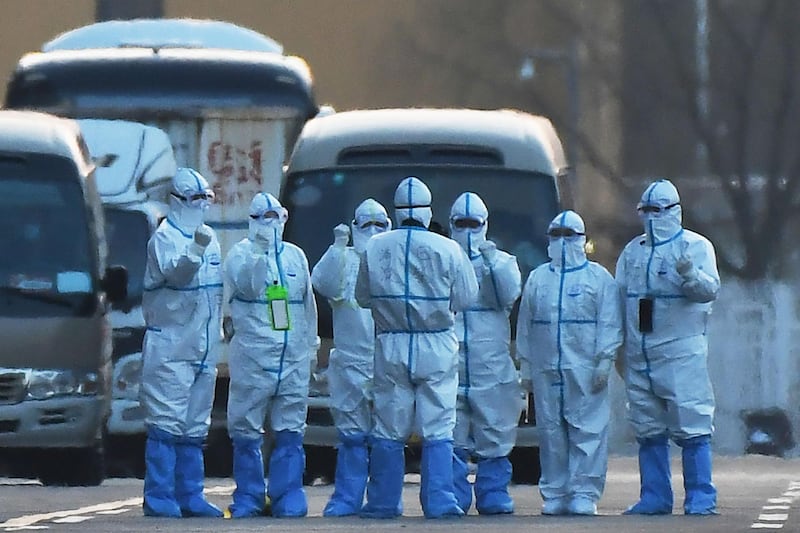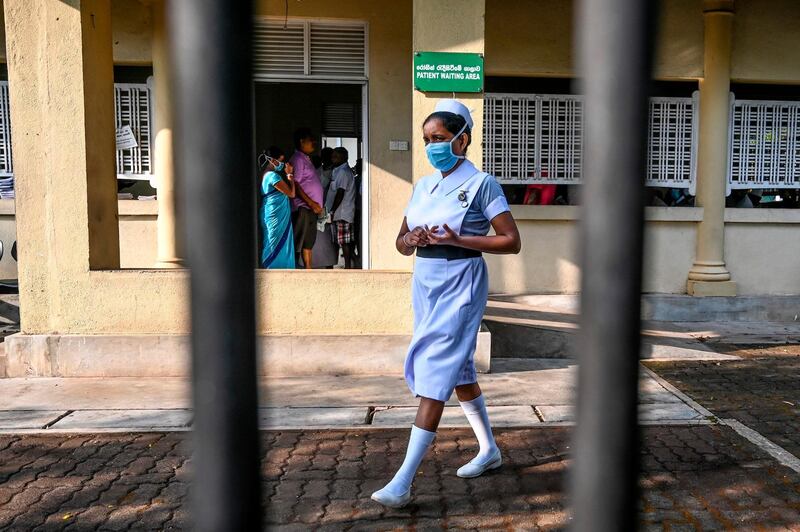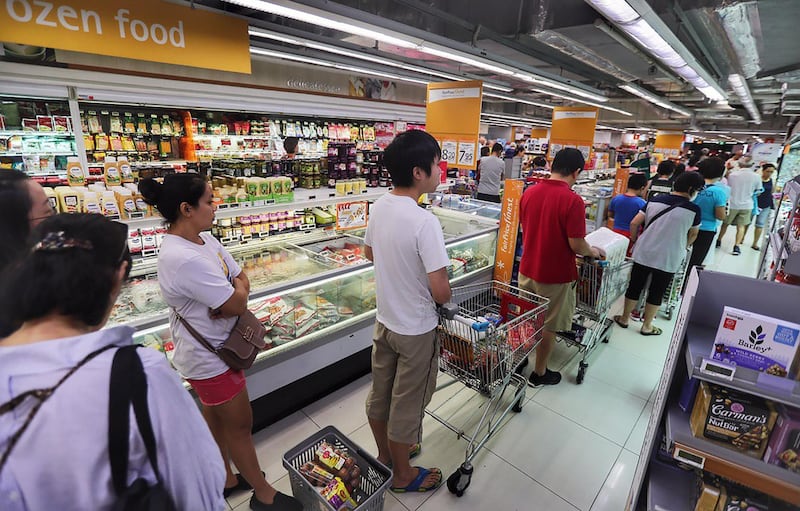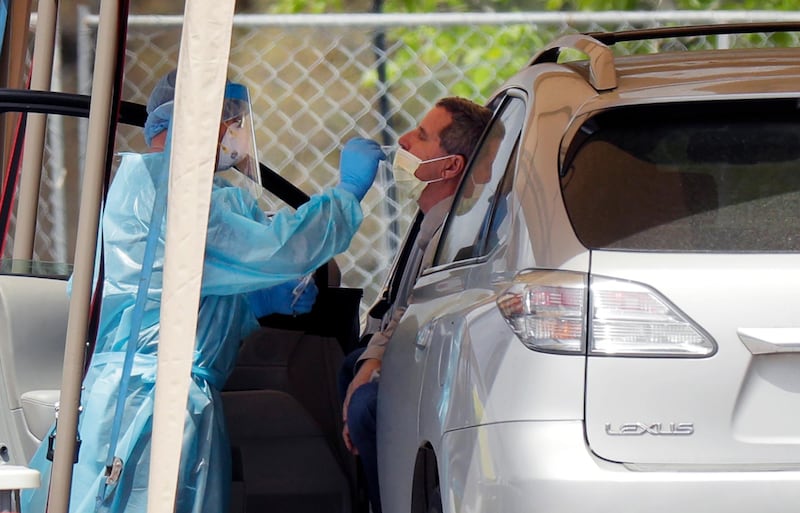Governments around the globe continue to grapple with how to stop the spread of the novel coronavirus known as Covid-19 by implementing border closures, travel restrictions and lockdowns.
Countries in the Gulf have taken unprecedented moves – Saudi Arabia has suspended Umrah pilgrimages, stopped prayers at mosques, shut all but essential jobs and closed off the eastern province of Qatif. The UAE has suspended entry for many, moved many to work from home and implemented widespread monitoring for cases. Every GCC state has been affected.
Since Covid-19 was detected in the Chinese province of Hubei in January, it has spread to more than 100 countries, infecting over 1.3 million people and killing more than 74,000.
How many cases are in the Gulf?
It has spread to every Gulf state, but the World Health Organisation has praised the actions of countries like Saudi Arabia and the UAE for the measures they have implemented to respond to the crisis and mitigate the number of fatalities.
Cases over time
How the numbers compare to the rest of the Middle East
How is each country managing the crisis?
Saudi Arabia
The Kingdom took its boldest step yet in fighting the spread of the virus at the beginning of April, placing the holy cities of Makkah and Medinah on 24-hour curfew. It came a day after they urged more than 1 million Muslims intending to perform the hajj to delay making plans this year.
The holy cities were followed by the capital Riyadh, as well as Tabuk, Dammam, Dhahran, Hofuf, Jeddah, Taif and Khobar, and the region of Qatif, the Interior Ministry said.
Entry to or exit from those areas will not be allowed, except for workers in vital sectors.
Residents are allowed to leave their homes only for medical or food needs inside their neighbourhoods between 6am and 3pm.
Elsewhere, a 21-day curfew from 7pm until 6am was put in place on March 23 and extended indefinitely on April 12.
The Kingdom ordered a suspension of all domestic flights, buses, taxis and train services for 14 days from March 21.
On March 26, the state Human Rights Commission said the Kingdom had released 250 foreign detainees held on non-violent immigration and residency offences as part of efforts to contain the spread of coronavirus, and that more releases were expected.
Authorities previously closed the shrines in Makkah in order to prevent large gatherings where the virus could be spread. The Grand Mosque has been partially reopened but people are prevented from touching the sacred Kaaba. Authorities also suspended the year-round Umrah pilgrimage, during which worshippers circle the Kaaba seven times.
The Kingdom has closed most public sector jobs barring medical services, security and defence. It has ordered the malls, restaurants, coffee shops and public parks and gardens to close but exempted supermarkets, pharmacies and food delivery, in a bid to stem the spread of coronavirus.
It has closed entry to stop new cases being brought in and implemented quarantine measures.
Saudi Aramco, the state oil producer and the world's most profitable company, said it would continue work.
The government suspended Muslims from conducting their five daily prayers and the weekly Friday prayer in the overflow area just outside the walls of the two holy mosques in Mecca and Medina to limit the spread of coronavirus.
Uber has suspended the option to book local taxi services in Saudi Arabia, in line with precautionary measures taken by the Ministry of Interior to limit the spread of the coronavirus in the country.
On March 30, Saudi Arabia's King Salman announced that he would provide free healthcare to anyone who contracted coronavirus.
UAE
The UAE halted public transport across the country from 8pm on March 26 until 6am on April 4 for a cleaning and sterilisation drive. These measures were extended for a further two weeks, and again indefinitely on April 4. Streets will also be sprayed extensively leading to road closures, state news agency Wam reported.
Whole most of the country is under a curfew, Dubai imposed tougher restrictions on movement and travel from Sunday night, April 4, saying that residents must apply for a permit to leave their home. The 24-hour curfew permit applies to all circumstances, even for essential shopping, and is available online. Only one member of a household will be allowed to go out, and they must wear a mask and gloves at all times.
The decision applies to those going out by car or on foot and is understood to require taxis to be off the road for a time.
In addition, "extensive testing" will be rolled out in densely populated areas to identify cases of Covid-19.
The rest of the UAE is required to stay at home every evening from 8pm until 6am during the disinfection campaign. The public are urged to stay at home unless absolutely necessary to get essential supplies, such as food and medicine, or perform essential jobs.
The Ministry of Interior and the National Emergency and Crisis and Disasters Management Authority said people should limit social contact and avoid crowded places as well as use their own family cars for transporting a maximum three people per vehicle.
The Ministry of Foreign Affairs and International Co-operation has said it will temporarily suspend travellers with GCC citizenship from entering the country until there is a system for pre-testing for coronavirus.
The latest measures to control the spread of the coronavirus comes after the UAE banned Emiratis from travel and implemented a mandatory 14-day self-quarantine for all travellers returning to the country.
No new work permits are currently being issued either. However, existing work permits and residence visas will be renewed automatically for labourers employed by companies and support staff such as domestic workers, the state news agency reported on March 25.
Other measures aimed at limiting the spread of the virus include a ban on shisha pipes and the closure of nightclubs and cancellation of events in Abu Dhabi to prevent large gatherings.
Abu Dhabi and Dubai have also closed many tourist attractions including theme parks and arts and cultural centres such as Louvre Abu Dhabi, Global Village and Qasr Al Watan.
All UAE beaches, parks and swimming pools were closed by government orders.
The Ministry of Health and Prevention announced that restaurants and cafes not be allowed to seat diners and would only be allowed to serve takeaway food and carry out home deliveries.
And on March 17, restaurants were issued with regulations aimed at curbing the spread of the virus – which includes a rule that restaurant tables must be placed two metres apart.
Dubai taxi drivers were instructed to clean handles and doors with sanitiser between journeys to help to prevent the spread of coronavirus.
Kuwait
Kuwait recorded its first death from the coronavirus outbreak on April 4. It imposed a nationwide curfew on March 22, from 5pm to 4am local time, which was extended on April 6 to keep the population indoors between 5pm and 6am.
It also imposed a full lockdown on the areas of Mahboula and Jleeb Al Shuyoukh.
Those who break the curfew could face up to three years in jail and fines of KD 10,000 the interior minister confirmed.
A public holiday declared from March 12 to March 26, except for entities providing essential services, has been extended by another two weeks . On March 13, Kuwait stopped all travel except cargo flights from the country until further notice.People are banned from going to restaurants and cafes and have been asked to no longer hold the traditional diwaniya private and public gatherings, state news agency KUNA said.
The Cabinet has suspended classes at all public and private schools as well as higher education institutions until August 4.
Kuwait has also initiated legal proceedings against people spreading fake news and rumours in relation to coronavirus, the country’s minister of interior said on March 18.
The ministry had warned the population against sharing rumours, saying it would track the culprits and hold them accountable.
On March 28 Kuwait repatriated citizens from London on a specially-chartered flight.
The country is also holding daily press briefings televised but national and regional outlets at 11am Sunday-Thursday.
Qatar
Qatar has banned dining in restaurants and cafes, allowing only delivery services and takeaway, and halted all forms of public transport.
“Until further notice, it is prohibited to process orders in restaurants and cafes anywhere in the country. The presence and seating of customers and the organising of gatherings in the designated halls are also prohibited, with the exception of delivery orders and takeaways,” the Ministry of Commerce and Industry said.
The government has also halted until further notice all public transportation services, including the Metro and Karwa buses.
Oman
Oman closed its borders and suspended all public transportation following a decision by the country’s supreme committee on coronavirus.
“As of tomorrow [March 19], only Omanis will be allowed to enter the country, and no Omanis will be allowed to travel abroad,” WAF News wrote.
On April 1, the district of Muttrah was completely closed off due to indications of “social transmission” of the virus and police began setting up checkpoints on roads connecting different governorates. Later on April 10, the entry to the capital Muscat was banned.
The committee announced a raft of new measures to limit the spread of coronavirus in the Sultanate.
“A decision to stop all public transportation in the Sultanate, including "buses, ferries, taxis (microbus), with the exception of buses and ferries travelling to and from the Musandam Governorate and the state of Masirah from tomorrow, Thursday 19 March 2020 until further notice," the Ministry of Transport said in a Tweet.
The committee has also ordered markets, malls, restaurants, tourist attractions, mosques, sports centres and cultural clubs to close from midday on March 18. Conferences and other gatherings were also suspended. Grocery stores, pharmacies, clinics and optical shops will remain open.
An unspecified number of people who published or promoted rumours about the spread of the virus have been arrested and some referred to court. Fake news and rumours spread online were causing “a certain amount of fear and panic," Dr Ahmed Al Shukaili, told Oman TV.
Bahrain
On April 4, Bahrain began requiring self-isolating citizens to wear electronic bracelets.
The bracelet will notify a monitoring station when they are 15 metres away from their phone, sending a warning to the wearer.
Bahrain has set up what has been described as “a war room” to co-ordinate the medical response with health professionals triaging pilgrims and other groups suspected to have contracted coronavirus, under control of the Crown Prince.
It has been holding regular televised press briefings and the state-run Bahrain News Agency published regular updates on cases, treatments and those who have recovered.
The Central Bank of Bahrain has banned lenders from freezing accounts of customers who have either lost their jobs or retired from employment in a bid to mitigate the economic impact of the coronavirus.
The kingdom has closed all public and private schools and nurseries for two weeks while the Bahrain F1 Grand Prix has been postponed. The race had been set for March 20-22 at the Bahrain International Circuit in Sakhir.
The government has ordered all retail stores to close temporarily, and only delivery services will be available from March 26 to April 9. Retail stores will reopen on April 9 to April 23.
Hypermarkets, supermarkets, cold stores, bakeries, pharmacies, and banks are exempt from the closures.
Bahrain launched a programme to repatriate its citizens on March 28, saying it would focus on getting its citizens out of Iran.
How is coronavirus affecting travel in the Gulf?
Saudi Arabia
On March 21, Saudi Arabia suspended all domestic flights, buses, taxis and train services, with only a few exceptions, for 14 days beginning Saturday.
On March 15, the government of Saudi Arabia suspended all international flights, inbound and outbound, for two weeks.
On March 28 the kingdom extended the suspension of international and domestic passenger flights "until further notice". Anyone returning to the country is advised to self-quarantine for 14 days.
The kingdom has been repatriating citizens stuck in other countries, including bringing 1000 people back from Bahrain via bus.
UAE
How Abu Dhabi Airport is screening for the coronavirus
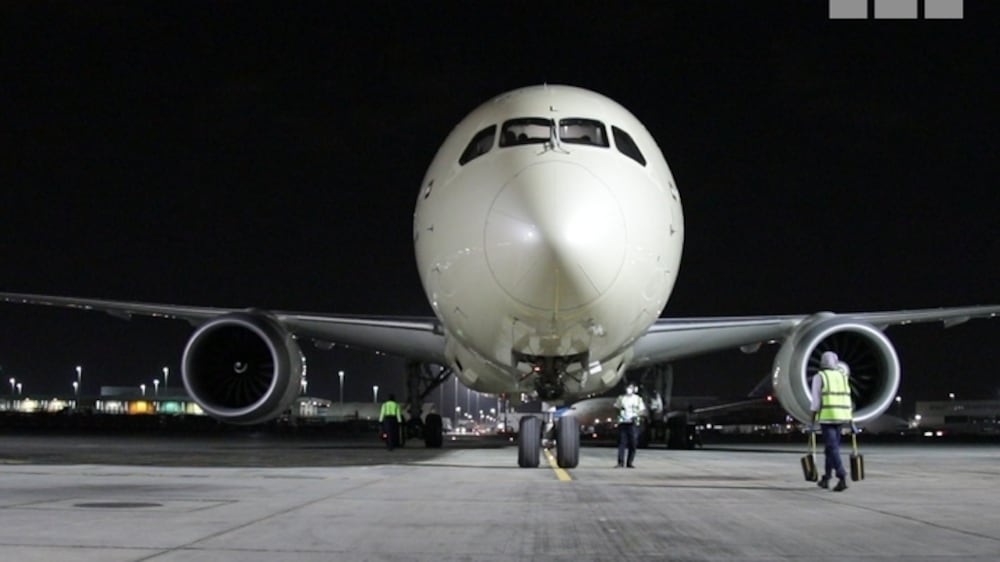
Passenger flights in and out of the Emirates were suspended for two weeks from March 25, the Civil Aviation Authority said.
From March 19 at midday, only Emiratis who are overseas can pass through the country's borders. The latest measure to control the spread of the coronavirus comes after the UAE banned Emiratis from travel and implemented a mandatory 14-day self-quarantine for all travellers returning to the country.
All non-essential foreign travel has been discouraged by authorities and several routes, including all flights to Iran, have been suspended by UAE airlines.
Etihad and Emirates announced on April 3 that they would be restarting a limited schedule of flights to several destinations, as a special service to repatriate citizens of foreign countries.
However, the General Civil Aviation Authority said that Etihad and Emirates’ services were not commercial flights, but special flights “for the purpose of evacuating residents and visitors who wish to leave the country and return to their country”.
Etihad now operates a “regular service” to several destinations, which started with Seoul, and later was expanded to include Singapore, Manila, Jakarta, Melbourne and Amsterdam.
Emirates obtained approvals for a number of flights to Zurich and Brussels from April 12 to April 18, with flights to Paris and routes to London Heathrow and Frankfurt until April 19.
Dubai's main carrier Emirates has now cut flights to 111 destinations across its network – which means more than 70 per cent of the airline's routes are currently suspended.
The latest destinations to be added to the list include several cities in the UK, US, Australia and all destinations in New Zealand. Some services are suspended until June 30, meaning many foreign residents in Dubai will not be able to travel home with Emirates for the annual summer break.
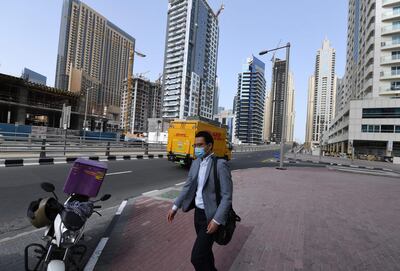
Kuwait
Kuwait has suspended all commercial passenger flights and entry to any travellers other than nationals and residents of Kuwait, their immediate relatives and domestic workers.
Qatar
Entry is suspended for all non-Qataris. All inbound flights were suspended from March 18, with the exception of cargo or transit flights. Transit passengers can still travel via Doha but cannot leave the airport.
Oman
Oman has banned the entry of tourists through all land, sea and airports. The ban came into effect on March 19.
Bahrain
Bahrain stopped issuing all visas on arrival from March 18, the country’s ministry of interior said. This excludes those travelling on diplomatic passports. Only residents and nationals of Bahrain, GCC nationals and those with existing visas are allowed to enter.
Flights between Bahrain and Saudi Arabia are suspended and the King Fahd Causeway is closed to all traffic.
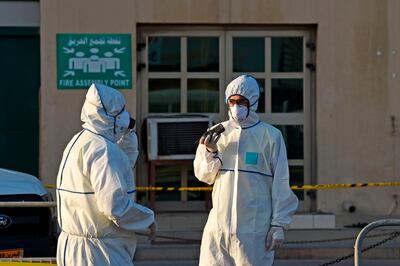
How is this affecting the region?
[ Saudi streets fall silent as 24-hour curfew seeks to stem tide of coronavirus ]
[ Coronavirus may leave Oman's tourism at 'once in a lifetime' low ]
[ Coronavirus: Saudi closes malls in Riyadh and Jeddah ]
[ GCC health ministers start joint operations room to combat coronavirus ]
[ Coronavirus: Bahrain’s ‘war room’ strategy far more effective than Britain’s minimal response ]
[ Coronavirus: Formula One season start could be delayed until June with Abu Dhabi finale pushed back ]
[ Kuwait charges coronavirus rumour mongers, minister says ]
[ GCC central banks cut interest rates following Fed's shock move ]
What is coronavirus and how is it spread?
Coronaviruses are a large family of viruses which may cause illness in animals or humans. Covid-19 is only the most recently discovered strain.
In humans, seven coronaviruses are known to cause respiratory infections, including the common cold and more severe diseases such as Middle East respiratory syndrome (Mers) – first recorded in Saudi Arabia in 2012 – and severe acute respiratory syndrome (Sars) which swept through southern China and Hong Kong in 2002 and 2003.
Covid-19 has affected far more people.
But it is far less deadly, with a mortality rate which is believed to be around 3.5 per cent, according to an estimate by the World Health Organisation, compared with about 10 per cent in Sars and 34 per cent in Mers.
The most common symptoms of Covid-19 are fever, tiredness and a dry cough. Some patients may have aches and pains, nasal congestion, sore throat or diarrhoea and, rarely, a runny nose.
Read more: What to do if you think you have coronavirus?
The elderly, and those with underlying medical problems such as high blood pressure, heart problems or diabetes, are more likely to develop serious illness.
According to a doctor who fought the outbreak in Wuhan, high blood pressure is a major risk factor. Out of a group of 170 patients who died in January in Wuhan – in the first wave of casualties caused by the pathogen – about half had hypertension.
A study of 44,000 patients by the Chinese Centres of Disease Control found only 0.2 per cent of children and teenagers died, compared with almost 15 per cent of people above the age of 80.
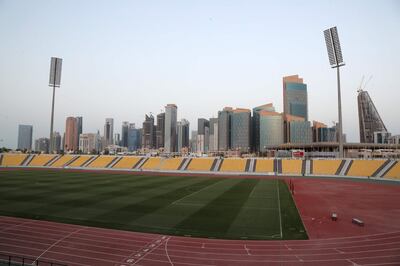
What should you do if you have symptoms?
The first thing you should do if you feel unwell and suspect you may have Covid-19 is pick up the phone and call the hospital you intend to visit ahead of time.
That way, doctors will be able to assess the risk you pose to staff and other patients. Public transport should be avoided at all costs to avoid spreading the virus further.
If you are identified as a possible carrier, the hospital will likely send an ambulance staffed with paramedics in protective clothing to pick you up.
Anyone suspected of suffering from Covid-19 will be isolated immediately.
A swab is then taken from the patient's nose and throat which is taken in a vial to a laboratory.
Results take between 24 to 36 hours, during which time the patient will remain isolated in the hospital.
How does this compare to the global picture?
At the beginning of April, there have been more than 47,000 worldwide fatalities. The US has now overtaken China with the highest caseload at more than 215,000 and over 5,000 deaths. The highest death toll worldwide has been reported in Italy, where the infection tally passed 110, 500 on April 2 and more than 13,000 people have died from the disease.
The outlook in the Gulf in terms of suffering caused by the virus is much lower than that witnessed elsewhere in the world, with 1,720 confirmed cases and 16 deaths in Saudi Arabia while the UAE has reported 814 cases and eight deaths due to coronavirus.
Experts have put that down to countermeasures taken early on in the crisis, unlike a country like Iran, which was accused of underplaying the crisis and not taking the appropriate restrictive measures to prevent the virus spreading far and overwhelming the country’s health system.
